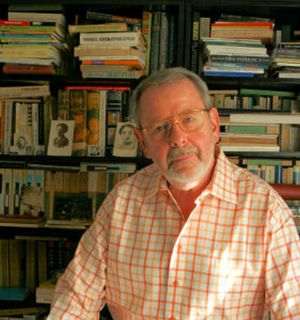Reporter: What is your opinion on the mandatory introduction of mediation, starting on February 13th, 2013, of the mandatory information concerning mediation?
Zeno Şuştac: The measure of the mandatory introduction of the information concerning mediation, represents an absolute procedural, is an absolute first in terms of procedure for Romania, it is extremely beneficent in the context of our country's overall effort to align to the Western Standards in the area. It is, if you'll allow me to say so, a very clever trick designed to promote awareness of an alternative method for dealing with conflicts which has already become commonplace for decades in the developed countries, and firmly entrenched in their collective consciousness.
Romanian citizens will find out, absolutely free-of-charge - another complete first! -, about the possibility of developing their own solutions for the numerous cases that they are involved in, and for the lawsuits which overburden the courts.
Reporter: Will the courts see their workload reduced due to this procedure? Will the number of lawsuits drop?
Zeno Şuştac: The unburdening of the courts was the main reason why mediation was introduced, about five decades ago, in the United States. We can provide statistically relevant data, but we will confine ourselves to saying that, this benefit of mediation, as an alternative to the established means of bringing justice, through the court, has been the reason that the procedure has spread very quickly in the democratic societies, where access to justice is not just a guaranteed right, but also an integral part of citizens' conscience. Mediation has been introduced in Romania, as part of a pilot program in 2003, by the Americans, and now the European Union is the main promoter of the segment, because Europe has understood quickly and has strongly backed this argument. The number of lawsuits will certainly be reduced by increasing the number of mediations, and the beneficial effect of this phenomenon is easy to imagine, both for the judges, as well as for the professionals in our legal system.
Reporter: The first mediation session will be free of charge. How will the mediators set the rates for the other sessions?
Zeno Şuştac: The information about mediation is free of charge, but the actual meeting is not. Mediators have the freedom to set the rates together with the parties participating in mediation, and these rates are generally set based on the complexity of the case, and, let's say it frankly, based on the material possibilities of the parties. One essential comment must be made though. A dispute subjected to mediation usually gets solved - and I will however present numbers here, we are talking about a success rate of over 80% ! - in just one session. The mediations which involve several sessions are rare, which is something that is unfathomable in the case of the standard litigation. In other words, the client of a mediator will only pay once to get to a solution, not upon successive hearings, on dates they don't even have control over.
Reporter: Do you think that the number of mediators will increase in Romania due to this procedure?
Zeno Şuştac: The number of applications for the professional training in the sector is in full swing. The number of authorized mediators has already begun to grow, as the pace of authorization is very quick, due to the mediators who recently completed their training, as well as due to those who had training previously who have decided that now is the right time to enter the profession.
Reporter: Why is mediation a beneficial process for Romania?
Zeno Şuştac: The answer has two angles. First of all we can speak about the benefits of mediation itself, for the citizens of every truly democratic society. In short, this translates in less time and money wasted, through the confidential, private nature of the procedure, through its positive consequences, as people who had a conflict will leave the mediator and mediation as friends once again, as capable partners, willing to continue their professional or personal relations, which doesn't happen too often after the rendering of a court ruling. Secondly, we can speak about the fact that mediation is a modern procedure which is typical for developed countries, as I said before. The implementation and permanentization of mediation in Romania clearly represents the confirmation of the fact that we have reached a praiseworthy level of development in the context of our integration in this group of countries, Which is something that we have been able to ascertain directly in the month of December, when the Mediation Council was represented at a major conference concerning the issues of justice in conditions of austerity, organized under the tutelage of the European Commission and the European Parliament in Brussels.
Reporter: What is mediation like in other countries, compared to ours?
Zeno Şuştac: The global picture is currently dominated by a few countries where mediation has become a regular component of social-professional life. Starting with the United States, going through Holland, Germany and going to Singapore via South Africa, to name just a few examples and to describe the scale of the geographical expansion of the phenomenon. We are of course, in the early stages of implementation, but we are tenaciously and avidly closing the gap.
Reporter: What will be the impact of the decision to postpone the introduction of the inadmissibility for petitioners who do not produce the confirmation that they have participated in the mandatory session of information about mediation, before going to court?
Zeno Şuştac: First of all, there will be a psychological effect which us mediators, strive to overcome with the conviction that it isn't fear of sanctions or restrictions that should get the litigants to come to mediation, but their conviction that the latter is an actual solution to their problems. For the skeptics, it is a sign that mediation is still an area looking for its own dynamic in Romania, which is encountering wariness, hesitations, perhaps even excessive concerns. For most of us, it is just a simple postponement of an unavoidable step. We are convinced that these stages will quickly be forgotten when mediation will fully enter public consciousness.
Reporter: Are there any restrictions concerning the free circulation of mediation services, as is the case with the legal services?
Zeno Şuştac: Absolutely none, with the exception of rigorous professional criteria which we apply for the practitioners of mediation, whom we insist on training and authorizing by complying with the highest training standards. Therefore, we set for ourselves restrictions concerning quality. Because, after all, mediation is a procedure which is based upon the freely given consent of the parties involved, parties which generate themselves the solution to the dispute, to the conflict they have. You can easily imagine that everything depends on the people who resort to mediation, to this method which can summarily be described as a negotiation between the people who are in conflict, assisted by a professional. And negotiation is actually part of our life, of human nature, it is something that has always been there which transcends borders and cultures. It is clear how simple and natural this phenomenon is!
Reporter: Thank you!


















































